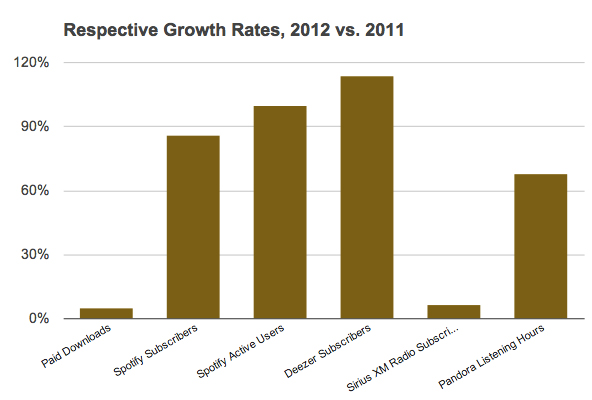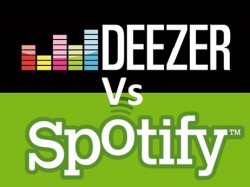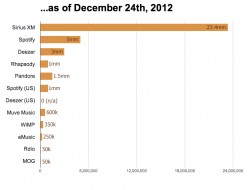
In December of 2011, Deezer announced it was launching internationally at LeWeb – this was around the time people learned it would be launching virtually everywhere but in the US. Following that, Deezer began rolling out in several dozens of countries, in addition to announcing a round of funding of, oh say, €100 Million from Warner Bros Music owner & billionaire Len Blavatnik.
Since then, Spotify has continued to grow, with an equally impressive round of funding; however, their activity in the US has made them the target of scrutiny and attacks by the music industry and media. Reports coming out detailing how the contracts that Spotify had signed made it nearly impossible for them to be revenue positive in the long-run, reports that artists make less than $.01 per track listening on Spotify, making it the least valuable way for an artist to monetize its music, didn’t help its image either. They had a few wins, such as Metallica, the band which notoriously fought against Napster in the early 2000s, announcing their entire discography would be available for download; however, Spotify has become the image of online music services, and thus, had to commit a lot of resources to defending that image.
Spotify recently quietly shutdown a paid downloading service in Europe – is this an indicator that they are losing traction on their original European audience; after all, they are originally Swedish. Deezer has maintained solid ground in France, and is slowly taking market share in European countries and else where.
I personally believe that this war will come down to one thing: developers. Both companies launched App Stores in 2012, and the race is now on to see which service can attract developers to create apps to add value to the experience, and turn their platform for music into an ecosystem which relies on the music data they have access to.
Did you like it? 4.5/5 (23)








